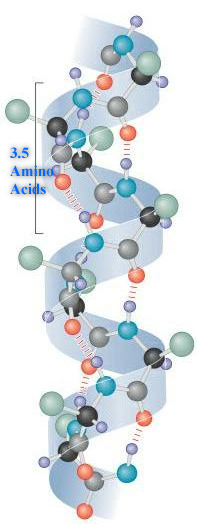This peptide has shown positive results in in-vivo experiments * This is Compugen's second recent discovery of a potential candidate to improve the effect of known, widely used cancer drugs

Compugen announced that the DAC Blockers platform led to the discovery of CGEN-25008, a new peptide that is antagonistic to the clusterin protein. Compugen also announced that analysis of laboratory cell experiments as well as initial experiments in a murine model of lung cancer indicate that CGEN-25008 decreases the growth rate of several types of cancer cells and significantly increases the anticancer activity of Taxol. A commonly used chemotherapy drug.
The DAC Blockers platform was designed to identify peptides that can block medically significant proteins from achieving a three-dimensional structure involved in causing disease. This discovery platform, announced in March 2008, is one of nine platforms, released to date, that are part of Compugen's intellectual property. These platforms were developed and validated by Compugen to identify candidates that will be used in the future as a drug or diagnostic product.
Alex Kutzer, President and CEO of Compugen said: "Following the long investment in establishing unique research capabilities, we are very pleased with the growing pool of discovery platforms focused on specific areas, which we have proven valid and yield an inventory of potential products. Not surprisingly, these achievements lead to growing interest from biopharma and diagnostics companies in order to learn more about our unique capabilities, examine possible collaborations and the possibility of licensing agreements."
Today's announcement follows our announcement from July 2008 about experiments that showed that 50001-CGEN significantly increased the effect of Tamoxifen, which like Taxol is used as a common drug to treat cancer, unlike the new peptide - CGEN-25008, CGEN-50001 already exists as a drug that is used In Europe in the treatment of disorders of the central nervous system (CNS). The potential for the use of this well-known drug in the treatment of cancer was discovered on the computer by Copemyogen's new indications platform, the platform is designed to find new therapeutic indications for existing drugs.
Applications to the Patent Office have been filed by Compugen for CGEN-25008 and for the use of CGEN-50001 in the context of cancer.
The new peptide CGEN-25008 revealed for the first time today, showed an effect of slowing down the growth of human lung cancer cells as well as other cancer cells including breast, prostate, colon and melanoma cancer cells. In addition, CGEN-25008 in low doses (1 nM) in combination with taxol resulted in an increase in the sensitivity of the cells to taxol. This allowed a 10-fold reduction in the taxol dose while maintaining the anticancer effect. In addition, the combination of high level (80 nM) CGEN-25008 together with taxol showed a 40% increase over the maximal effect achieved by taxol alone.
Yossi Cohen, MD, Head of Research and Development at Compugen said, "In a murine model of lung cancer, the size of the tumors decreases more disciplined when Taxol is given together with CGEN-25008, compared to treatment with Taxol alone. This may eventually translate to the use of lower doses of chemotherapy drugs and therefore lead to a reduction in their side effects without harming the anti-cancer effect or, alternatively, to enable the strengthening of the anti-cancer effect."
About Clastrin
Clastrin is an extracellular chaperone protein induced by stress. It is controlled by a selection of substances that induce programmed cell death and cause resistance to the treatment of several types of cancer. Among all the factors that control the expression of the protein clastrin is chemotherapy, radiation and hormonal removal. The function of clastrin during the development of resistance to chemotherapy is at the center of research in academia and the biological industry. A drug based on nucleic acids that suppresses the expression of clastrin is currently in clinical development by another company as a potential treatment that can increase the level of sensitivity of tumors resistant to conventional treatment.
About the discovery platform for peptides that block protein structures associated with DAC Blockers diseases
The DAC Blockers platform, which aims to discover peptides capable of preventing the formation of protein structures associated with diseases, was recently published by Compuogen. This platform is the product of a series of algorithms developed by Compugen, to identify protein segments whose addition as peptides may prevent proteins from adopting a structure and activity related to the disease. These peptides can have healing abilities for various diseases.
In addition to this, the key capability of this platform is that the prediction and selection capability enables a broad scan of the human, viral and bacterial proteome.
